Investigative Stories
-1736943504.jpg)
On 24 November 2024, during the third Pabson international conference, the organisation’s chair DK Dhungana said, “The then prime minister Pushpa Kamal Dahal had committed to fulfilling our demands. After a talks committee led by Deputy Prime Minister Purna Bahadur Khadka sat with representatives from Pabson, N-Pabson and Hissan, the draft of the bill was rewritten and an amendment was submitted. The committee is currently discussing it.”
During the same function, former prime minister Dahal had said, “During my tenure, the government had made great effort to introduce the Federal Education Act. The bill incorporates many amendments according to your suggestions. Once the Act is endorsed, the practical and policy-related issues will get addressed.”
These two statements highlight that even before the school education bill was presented to the parliament on 13 September 2023, there was an agreement between the government and representatives from private schools’ associations about what to include in the bill.
Regarding the manoeuvrings about this bill, then Minister for Education, Science and Technology Ashok Rai says, “After the private sector objected to the provision in the bill that said private schools needed to come under public guthi within five years, the Cabinet removed the compulsory provision stating schools would now be established only under public guthi and the existing school would now be turned into companies, and presented the bill in the parliament.”
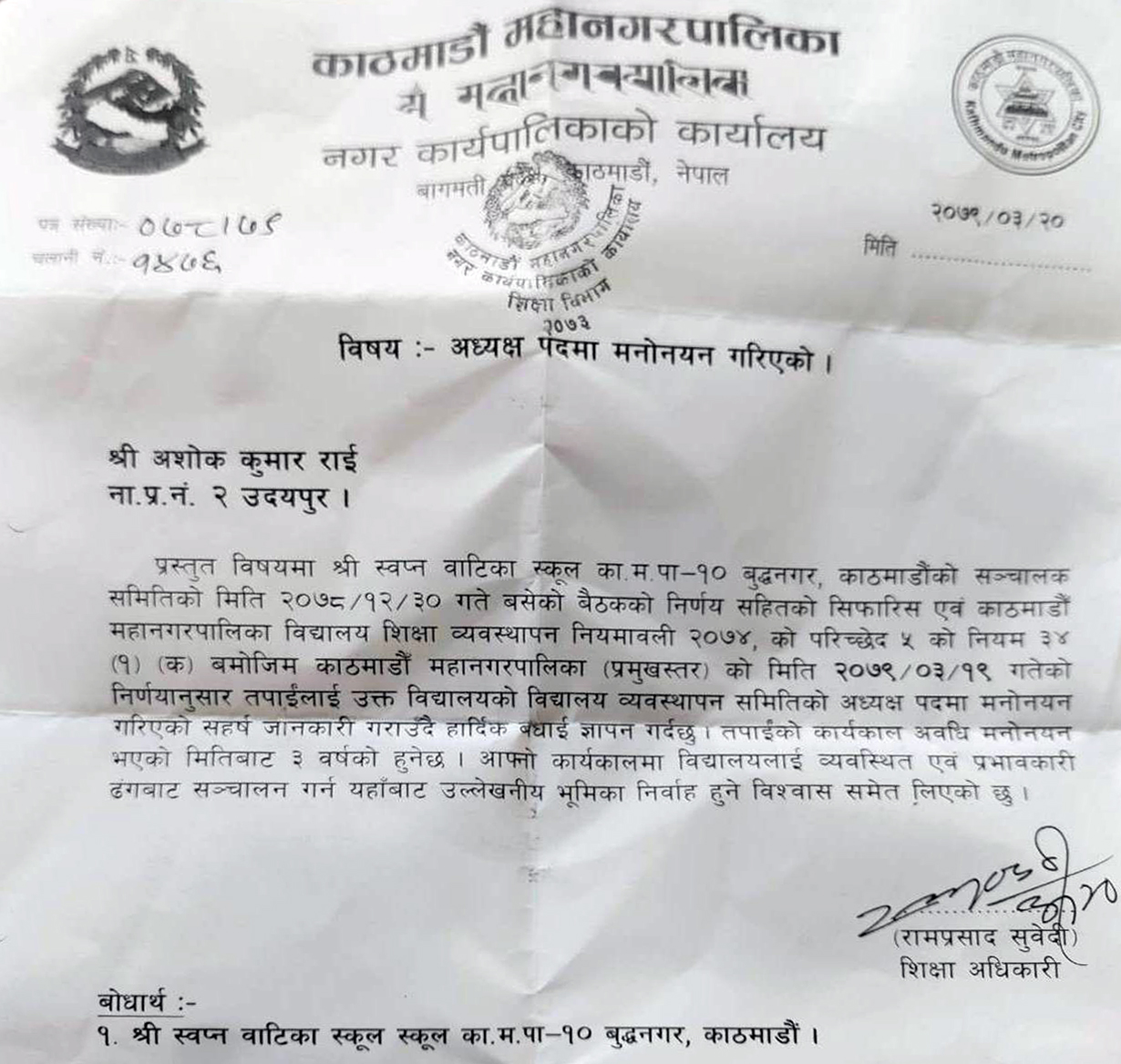
This is an example of how interest groups manoeuvre to change the contents of the bill before it is presented in the parliament. After the private school operators warned of protest by closing schools, the then government had formed a task force under then deputy prime minister Khadka and forwarded the bill. After the government itself bent to the wills of private school operators while formulating law, lawmakers have presented the amendments accordingly.
The lawmakers from Nepal Majdoor Kishan Party have proposed that private schools should be taken under public guthi five years after the law comes into force; those from Nepali Congress, CPN-UML and Maoist Centre have proposed ten years; while the Rastriya Swatantra Party lawmakers have proposed 20 years. Then Education Minister Ashok Rai had a direct interest in this.
Rai, who cited interest groups to forward the bill that included the provision to continue running private schools according to Company Act, is the operator of the Buddhanagar-based Swapna Batika School. He had resigned from the school management committee 17 days before the bill was registered in the parliament. The school’s principal is Sushila Shrestha, who is a lawmaker represntating the People’s Socialist Party, of which Rai is the chief.
Another lawmaker maneouvering to change provisions of the bill is Nepali Congress’s Tejulal Chaudhary, who is the operator of the Kupondole-based Nightingale School. Chaudhary’s proposal also states that schools should be allowed to run under Company Act.
A joint proposal, presented by lawmakers including Chaudhary, states, “The private schools formed after the implementation of this law will be run under education guthi but those established before the law will be considered to have established and operated under this law. Permission for level and grade upgrade will be granted on that basis.”
The amendment presented by Janata Samajbadi Party lawmaker Ranju Kumari Jha matches it verbatim. Meanwhile, Nepali Congress lawmaker Sunil Kumar Sharma, who operates a private medical college, has presented an amendment to formulate law that allows the newly formed schools to be registered as companies and doesn’t bar the existing private schools from operating according to Company Act.
Likewise, UML’s Rukmani Rana Baraili, Shanti Shrestha, Amrit Lal Rajbanshi, and Achyut Prasad Mainali, and Maoist Centre’s Ram Kumar Rai and Narayani Sharma have presented an amendment to remove the provision to operate private schools under the education guthi after the law comes into force. Rastriya Prajatantra Party’s Dhawal Shamsher Rana is for formulating law that allows private schools to operate under not just education guthi but also under Company Act. Rana was formerly the oprator of Nepalgunj Modern Public School.
Not just the school education bill, lawmakers have also presented amendments on Some Nepali Acts Amendment Bill, 2080 BS to serve the interests of officials at the parliament. Lawmakers from the Congress, UML, Rastriya Swatantra Party, JSP, Unified Socialist and independents have presented amendments to increase the perks and pensions of the general secretary of the parliament, secretary of Rastriya Sabha and officials at parliament secretariat.
Among the lawmakers presenting amendments that mandates pensions to officials entering parliament service through public service commission are Rajendra KC of the Congress; UML’s Gokul Baskota, Achyut Mainali, Thakur Gaire, Deepa Sharma and Ishwari Gharti; RSP’s Santosh Pariyar and Sumana Shrestha; JSP’s Pradeep Yadav and Ranju Kumari Jha; Unified Socialist’s Rajendra Pandey; and independent Amresh Kumar Singh.
This is not the first officials at the parliament have maneouvred to tweak law for their own interests. Prior to this, in Falgun 2075 BS, an employee integration bill passed through the committee mandated that officials at federal parliament could be transferred to serve in general administration of local level. But after knowing that the bill included a provision wherein parliament officials could also serve in federal general administration, the then chair of State Affairs and Good Governance Committee Shashi Shrestha had corrected the report and presented it to the second meeting on 15 February 2019.
Lawmakers also maneouvred to change the bill formulated to amend Some Acts Related to Money Laundering Control and Promotion of Business Environment. Lawmakers had also maneovred to quash the proposal presented to determine the maximum amount a person can deposit in a cooperative.
Likewise, a law has been formulated to make it easier for a businessman to operate more than one casino. The move was made while amending the Tourism Act, 2035 BS that was presented inside the Some Nepal Acts amendment proposal.
The bill to amend Tourism Act 2035 BS presented in parliament on 10 February 2023 proposed that if a company was operating more than one casino, they could operate any one of their choice within mid-July 2023 and had to take permits for other casinos by establishing different companies by mid-July 2024.
But when the Act was endorsed, the deadline was extended to mid-April 2029. The government had proposed operating casinos within three kilometres of the international border. UML lawmaker Raghuji Pant had presented an amendment proposal to remove the term ‘within three kilometres of international border’. When the law was endorsed, it mentioned one could operate casinos within ‘five kilometres of the international border’.
Maneouvrings of interest groups
“If the stakeholders are strong, then they lobby,” Radheshyam Adhikari, a former National Assembly member, said. “They sponsor trips to lawmakers and use them to tweak laws according to their interests. Lawmakers should think about whether the law is in the interest of the country.”
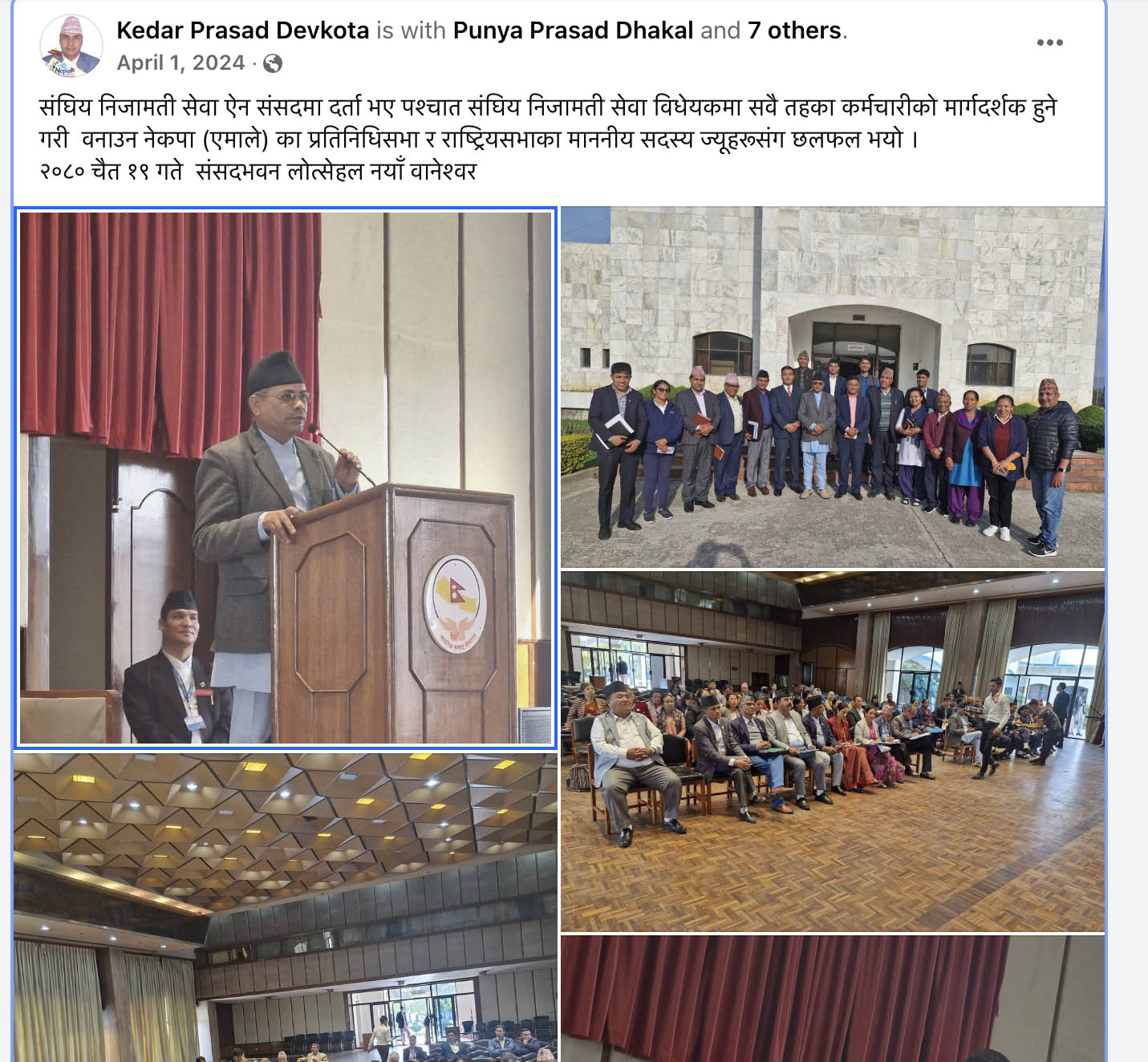
Former secretary of Law Ministry Madhav Poudel says that interest groups maneouvre to change the bills before they are presented in the parliament and afterwards too. “They mobilise lawmakers to present their amendments,” Poudel says. “And the lawmakers don’t even understand the contents of the amendment and who it benefits.”
He remembers how the Bank and Financial Institution Act was modeled to meet the interests of lawmakers who were also operators of such institutions.
Regarding the tenure of the chair and operator of the institutions, the lawmakers had manoevred to replace the word from ‘chair’ to ‘acting chair’ and extended the tenure provision to ‘two tenures’. The then members of the Finance Committee Ichchha Raj Tamang and Umesh Shrestha had a hand in this. At the time, Tamang was the chair of the Civil Bank and Shrestha of the Prime Commercial Bank.
Moreover, there are incidents where interest groups have influenced not only the lawmakers but even the government. The examples are the Nepal Trust Act and Land Reform Act.
In December 2019, the Cabinet meeting decided to lease the 2,793 ropanis of land of Gokarna Resort that was in the name of Nepal Trust to Yeti Group for 25 years, even before the previous contract had expired. The government had amended the Nepal Trust Act through the parliament for that purpose.
The Act was amended with the provision that the Nepal government can extend the duration of the lease contract if the party using the land wants to maintain and repair the property by investing more amount on it and if the government sees it benefits it financially.
Another bill that the government has maneouvred to benefit interest groups is Land Reform Act. The Act was amended on Magh 2076 BS to introduce the provision that the land leased by various individuals or companies under deadline exemption can be exchanged or sold.
The amendment also included the provision where the government can let the land leased under a deadline to be exchanged or sold. On 26 April 2021, the Cabinet had allowed the land of Giribandhu Tea Estate to be exchanged all at once and if it was not possible, then one-third of it can be exchanged and that should be done within one-and-a-half years. The reason behind the amendment had only come to light then.
The Supreme Court has halted the decision made by KP Oli administration to grant the permission to exchange 343 bigha 19 kattha 12 dhur land of Girbandhu within Koshi province. “The contents of the bill presented by the government might not be clear even to the ministers, let alone lawmakers,” Adhikari said. “Ministers only read what secretaries write to them.”
These instances clarify that lawmakers from the ruling and opposition parties support the bills without understanding it and that laws are being formulated with influence from interest groups.
“Middlemen seek laws that are favourable to them whether by taking the lawmakers on a trip abroad or by offering lunchs and dinners at expensive hotels,” Binda Pandey, a former lawmaker, said. “Whether by sponsoring the education of their childrein or by offering them jobs.”
The issue related to crusher industries
Crusher businessmen have been trying to exert their influence on the bill related to construction material management and regulation which is currently being deliverated at the State Affairs Committee. Lawmakers from the ruling and opposition parties appear to be in cahoots to formulate a law allowing the extraction of construction material from Chure area, the sides of the road bridges and buffer zones.
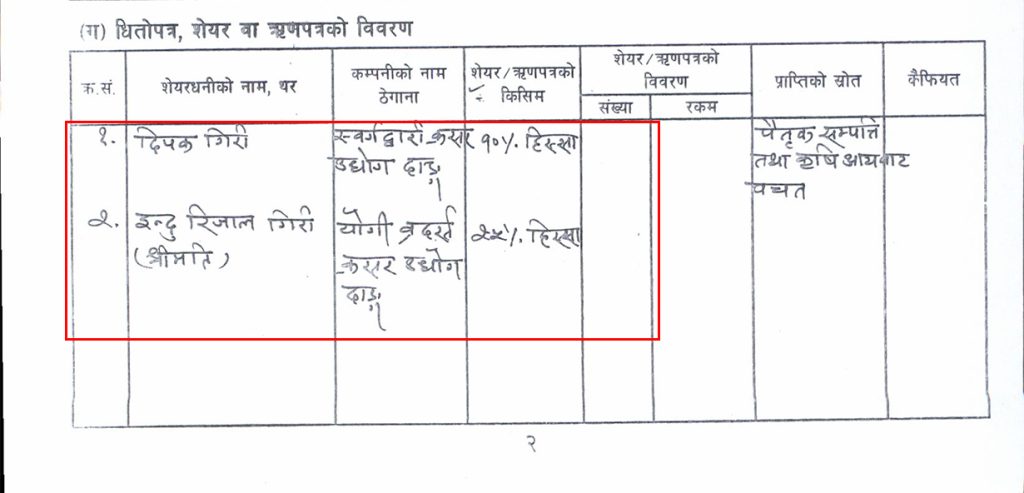
The bill was presented by the Federal Affairs and Local Administration Ministry to the parliament on 2 November 2023 and was sent to the committee for clause-wise deliveration on 31 March 2024. The bill includes amendments presented by 37 groups. One of them is Congress lawmaker Deepak Giri. Giri, elected from Dang-3, owns crusher factories in Kalakate, Dang and nearby Rapti bridge.
His partners are Khadak Budhathoki and Subash Yogi. His wife, Indu Rijal, is the operator of the Swargadwari crusher industry and a partner of Yogi Brothers crusher industry, both of which he owns, according to his property details submitted while he was the Irrigation Minister. Giri had mentioned in his property details submitted on Mangsir 2073 that he owned 10 percent shares at Swargadwari crusher industry and his wife owned 25 percent shares at Yogi Brothers.
Giri is now trying to tweak the bill related to construction material to his will. Giri, who is also the member of the parliamentary Public Accounts Committee, has presented an amendment that allows extraction of construction material from the Chure area.
The sub clause 1 of clause 3 of the bill has determined that Chure area and area at certain distance from it can’t be mined for minerals. Part (b) proposes a ban on mining construction material from national parks, wildlife reserves, conservation areas or buffer zones, Ramsar areas and botanical gardens.
Supporting Giri on his amendment proposal to remove that provision are Congress lawmakers Rajendra Kumar KC and Sanjay Gautam. UML lawmaker Mahesh Kumar Bartaula has also presented an amendment proposal to remove the ban on extraction of construction material from the buffer zones.
Giri has not just opposed the ban on extraction from the specified areas but has argued that the Division Forest Office can grant permission to allow the extraction of construction material from within 15 hectares of the forest area.
The clause 12 of the bill has the provision to ban the extraction of construction material from within a kilometre below the man-made structures such as bridges and 500 metre above from them if the extraction site has any such structures nearby.
UML lawmakers Basudev Ghimire, Rana Kumari Balampaki, Pratikshya Tiwari and Samjhana Thapaliya have presented a proposal to amend the distance to 500 metres and 300 metres, respectively. Giri has presented the proposal to set the distance to 100 metres on either side from bridges and 100 metre above and 200 metre below the motorable bridges.
While the bill’s clause 20 mentions that crusher industries should be registered, Giri has argued that since it falls under productive industry, it need not be registered. Giri says that he can’t recall what amendments he has presented to the bill. “I do not recall the amendments I presented. I might have signed on the proposal brought by someone else,” he said.
This is not the first instance where lawmakers have tried to formulate laws to their will. Experts say that the current crisis in cooperatives is the result of the maneouvrings of lawmakers affiliated to cooperatives to formulate the Cooperative Act 2073 to their will.
Not just the Cooperative Act, lawmakers have also tweaked laws related to money laundering control and promotion of the business environment because it clashed with their interests. Lawmakers had quashed the provision fixing the maximum ceiling of individual deposits in cooperatives.
Among the lawmakers opposing the provision were Congress lawmakers Ramhari Khatiwada, Udaya Shamsher Rana, Rajendra Kumar KC, and UML’s Mahesh Bartaula, Tara Lama, Saraj Ahmed Faruki, Leelanath Shrestha, and Ishwar Bahadur Rijal, Loktantrik Samajbadi Party’s Ram Prakash Chaudhary, Unified Socialist’s Prakash Jwala and Metmani Chaudhary, and Maoist Centre’s Hitraj Pandey and Shakti Basnet.
Among the lawmakers actively involved in tweaking the Cooperative Act 2074 to their favour were UML’s Ichchha Raj Tamang, Keshav Badal, Banshidhar Mishra, Kedar Sanjel, Guru Burlakoti, and Ganesh Pahadi, Maoist Centre’s Shakti Basnet and Giriraj Mani Pokharel, and Congress’s Sanjaya Gautam, Prakash Sharma, Dig Bahadur Limbu, Mohan Prasad Baral, Kamala Panta, Rajendra Prasad Pandey and Bhanu Bhakta Dhakal.
UML’s then lawmaker Tamang was the first to present the amendment to the 2073 BS bill about amending cooperative law. Clause 49 of the bill had the proposal to limit individual deposit. On this, UML’s Keshav Badal, Binod Shrestha, Banshidhar Mishra, and Prem Bahadur Giri, Congress’s Prakash Sharma, Sanjaya Kumar Gautam, Dig Bahadur Limbu, Mohan Prasad Baral, and Kamala Panta, Maoist Centre’s Shakti Basnet and Sanghiya Samajbadi Forum’s Shivaji Yadav had presented separate amendment proposals.
On 1 September 2017, the government had passed the bill by removing the clause according to the amendment proposal presented by a team of lawmakers led by UML’s Badal that included Maoist Centre’s Basnet, Congress’s Omdevi Malla, UML’s Pashupati Chaulagain, Kedar Sanjel, Guru Burlakoti, Ramkumar Bhattarai, Ganesh Kumar Pahadi, Sita Giri Oli, Kamala Kumari Ghimire, Sushila Nepali, Ananta Prasad Poudel, Rajendra Prasad Pandey, Taradevi Rai, Bhanu Bhakta Dhakal, Shyam Prasad Dhakal, and Maoist Centre’s Giriraj Mani Pokharel.
Taking the matters into your own hands
Employee management has been a key issue in the past nine years since Nepal adopted federalism. While the federal government hasn’t issued the Civil Servants Bill, some provinces have issued it. The government presented the bill to parliament on 4 March 2024 after taking it back once before.
The bill first registered in parliament on 10 February 2019 was endorsed by the parliamentary committee but the government had taken it back on 7 October 2021. Clause 10 of the bill proposes that during promotion, 80 percent of fourth-level employees and 65 percent of seventh-level employees be selected through open competition.
But due to influence from employees’ associations, lawmakers have proposed that the threshold under open category be reduced to 60 percent and be increased from 10 to 20 percent under inter-level category. Likewise, the ruling and opposition lawmakers have agreed to the proposal to reduce the threshold from 65 percent to 50 percent under the seventh-level and increase it from 25 percent to 50 percent under automatic promotion.
Of the lawmakers proposing to reduce the threshold from 80 percent to 60 percent under the fourth-level open competition and increase the natural promotion provision from 10 percent to 30 percent are Congress’s Sushila Thing, Pushpa Bahadur Shah, Jaabeda Khatun, Chanda Chaudhary, Sapana Rajbhandari, Seeta Gurung, Rama Koirala, Maina Karki, Rajendra Kumar KC, Anjani Shrestha, Shanti BK, Dilendra Prasad Badu, Ramnath Adhikari, Mukta Kumari Yadav, and Sanjaya Kumar Gautam. Meanwhile, UML’s Thakur Prasad Gaire and Menuka Pokharel are foll reducing the fourth-level threshold from 80 to 70 percent and increasing it under the internal category from 10 to 20 percent.
Among the lawmakers proposing to reduce the threshold under open category from 65 to 50 percent and to increase it for natural promotion from 25 to 40 percent are Congress’s Rama Koirala, Maina Karki, Anjana Shrestha, Shanti BK, and UML’s Thakur Gaire. Likewise, of those proposing to reducing the threshold under seventh-level open category from 65 to 50 percent and increasing it under natural promotion from 25 to 50 percent are UML’s Ammar Bahadur Rayamajhi, Janata Party’s Abdul Khan, Congress’s Ramnath Adhikari, Sushila Thing, Ramkrishna Sharma, Maina Karki, Maya Rai, Chitra Bahadur KC, Dilendra Badu, Sanjaya Kumar Gautam, and Badri Pandey.
Meanwhile, of those proposing to reduce the threshold for seventh-level open category from 65 to 50 percent and increase it from 25 to 40 percent under natural promotion are Maoist Centre’s Mahendra Shahi and Tsering Lhamu Lama, Rastriya Swatantra Party’s Toshima Karki, UML’s Dayal Bahadur Shahi, Ram Shankar Yadav, Ganga Prasad Yadav, Ashma Kumari Chaudhary, and Rastriya Prajatantra Party’s Deepak Bahadur Singh and Bina Lama.
Likewise, Unified Socialist’s Rajendra Prasad Pandey, Prakash Jwala, Metmani Chaudhary, Ammar Bahadur Thapa, Sher Bahadur Kunwar and Congress’s Anjani Shrestha have proposed to reduced the threshold under internal category to 60, under natural promotion to 30 and to 10 percent for open competition. These details highlight that lawmakers are not even aware why they are proposing the amendments at all. “Many lawmakers are totally unaware about the contents of the bill,” Pandey, the former lawmaker, says.
One lawmaker, many proposals
In many instances, a single lawmaker has presented different proposals to amend a single clause. In the bill related to civil servants, Congress’s Chanda Chaudhary has proposed a threshold of 80 percent for fourth-level open competition and 10 percent for internal category while in another joint proposal made by six lawmakers including Sushila Thing says the threshold for open competition be set at 60 percent and for internal category 30 percent.
While her personal proposal mentions the threshold of 65 for open category, 10 for internal, and 12.5 percent according to work performance evaluation and seniority, the joint proposal puts it as 50 percent each for open category and natural promotion. The joint proposal of Maoist Centre’s Tsering Damdul Lama and Narayan Sharma puts the threshold at 60 percent for seventh-level open category, 10 percent for internal competition and 10 percent for promotion. But Tsering’s proposal puts it at 60 percent, 10 percent and 40 percent, respectively.
Likewise, Loktantrik Samajbadi Party’s Ram Prakash Chaudhary has presented three proposals to amend this clause. While he has made a proposal of a 70 percent threshold under fourth-level open competition and 20 percent under internal competition, in another he has put the open competition at 80 percent. He has presented the threshold proposal of 50 percent under seventh-level open category and 40 percent under promotion.
In his second proposal, however, he has proposed the threshold under open competition at 70 percent, under internal competition at 10 percent, and 20 percent for promotion. Meanwhile, his third proposal puts the threshold under open category at 70 percent.
Congress’s Ramnath Adhikari has proposed the threshold under assistant fifth open category at 40 percent, 40 percent for internal category and 50 percent for promotion. In another proposal, he has put the threshold at 70 percent for open category, 20 percent for internal, and 10 percent for promotion. Likewise, Jeewan Pariyar has presented the threshold for eleventh-level internal at 15 percent, and in another joint proposal with Gagan Thapa he has put the threshold for internal competition at 20 percent.
The confusion persists in the school education bill. One proposal by Janata Samajbadi Party’s Rajkishore Yadav, Unified Socialist’s Ammar Bahadur Thapa, Krishna Kumar Shrestha, Metmani Chaudhary and Congress’s Rama Koirala, Kusum Devi Thapa, Pratima Gautam and Sanjaya Kumar Gautam puts the threshold of open category for relief teachers at 25 percent and 75 percent for internal category.
In another, they have presented the proposal of 100 percent selection from internal competition. In one proposal, Kantika Sejuwal has presented a 100 percent selection from internal competition, while in another joint proposal 75 percent.
A proposal presented by UML’s Rukmini Rana Baraili, Shanti Shrestha and Amrit Lal Rajbanshi mentions that the school management committee should appoint the principal to be selected through open competition according to local laws based on the criteria set by the commission. Another joint proposal by Shrestha and Baraili, however, opts for the provision that the principal be appointed by the chair of District Education Office after an open competition and recommendation from the commission.
One proposal by Pradeep Yadav mentions the principal be appointed through the commission while another mentions they be appointed from the local unit. Manish Jha’s proposals are similarly contradictory.
Intervention on the parliament’s jurisdiction
According to schedule 8 of Nepali constitution, local units have the right to monitor secondary education up to grade 12. Under schedule 9, education falls under the joint responsibility of local, provincial and federal governments. On 13 September 2023, the government registered the school education bill with the provision that teachers come under the jurisdiction of local units in the parliament.
The Federation of Teachers took out a protest against it in Kathmandu on 20 September. The government and the federation then signed an agreement. Then relief teachers, early childhood development teachers, school officials and higher secondary teachers took out another protest and then forged a deal with then Education Minister Ashok Rai. The government struck deals while the issue was already under the business of the parliament. “This is an intervention on the rights of the parliament,” an official at parliament secretariat says.
The bill has separated 50 percent for quota to relief teachers, special and technical teachers and trainers. Most of the lawmakers agree that teachers shall be promoted to permanent status through an examination between 100 percent of working teachers.
A joint proposal presented by Rastriya Swatantra Party’s 17 lawmakers including its chair and vice-chair mentions that a limited quota should be fulfilled from out of the working teachers and the rest from open competition. Congress's Arjun Narsingh KC has proposed that there should be a 100 percent quota for relief teachers, teachers under contract, and teachers from technical subjects, and 75 percent out of internal competition for teachers according to the duration of their service.
The proposal by Congress’s Bishwa Prakash Sharma, Hridaya Ram Thani, Ramnath Adhikari, Dev Prasad Timilsina, UML’s Menaka Pokharel, Mahesh Basnet, Raghuji Pant, Narayan Prasad Acharya, Damodar Poudel, Deepa Sharma, and Narayan Prasad Acharya matches verbatim with that by Janata Samajbadi’s Rekha Yadav.
A joint proposal by eight lawmakers including Unified Socialist’s Rajendra Pandey says teachers should be granted permanent status through a minor competition. Proposal by Nepal Majdoor Kishan Party’s Prem Suwal matches with it. Meanwhile, Maoist Centre’s Barshaman Pun, Madhav Sapkota, Devendra Poudel, Ganga Karki, Meena Yadav, Congress’s Sanjaya Kumar Gautam, Rajendra Kumar KC, and Janata Samajbadi’s Pradeep Yadav are also for granting teacher the permanent status through internal competition.
Confusion in law
There is a provision to not appoint lawmakers from the House of Representatives and National Assembly in the committee where they might have a conflict of interests. According to rule 14 of House of Representative’s working procedure, lawmakers should be barred from making decisions where they have a direct interest.
There is also a provision in the code of conduct that mentions that if lawmakers have a conflict between their personal interests and public interests they should stand clearly for the latter.
The code monitoring committee should investigate in case any code of conduct is flouted. But the committee appears indifferent to the open intervention in the lawmaking process from lawmakers with conflict of interests.
The Law Commission has already prepared a draft bill to make the work execution of public officials efficient and transparent and presented it to the Law Ministry on 24 January, 2024.
On 30 January 2023, during the tenure of the then Law Miniser Dhruba Bahadur Pradhan, it was decided to confer the responsbility to formulate the conflict of interest management bill to the Law Commission. Nepal has endorsed the UN treaty against corruption. The treaty states that the country should formulate a law related to conflict of interest to implement it.
“We have already sent a draft of the concept paper to control conflict of interest to the law ministry,” Jageshwar Subedi, chair of the Law Commission, said. “It is necessary to formulate a law to keep check on conflict of interest.”
The draft has defined private interests as those that are beyond public interest or concern. It defines conflict of interest as the situation where the work carried out by a public official clashes with their private interests.
It is mandatory for public office bearers to notify their office before their appointment about areas that may involve conflict of interest. The draft also includes a provision where a decision taken with the involvement of a public office bearer with conflict of interest be automatically invalidated.
More Investigative Stories
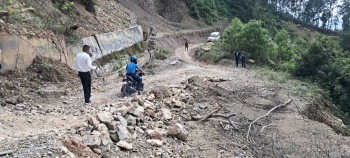
In Koshi Province, DPRs worth millions for projects never to be built
Many detailed project reports (DPRs) prepared by the Koshi provincial government at the cost of tens of millions are shelved....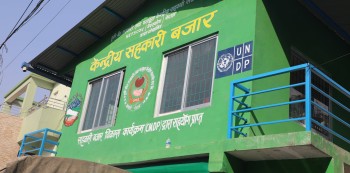
Uncooperative cooperatives
A Rs1 billion project aimed at promoting farmers failed due to mismanagement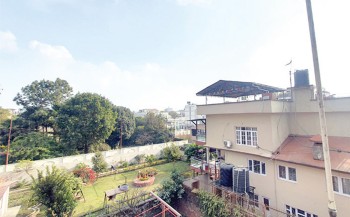

Comment Here